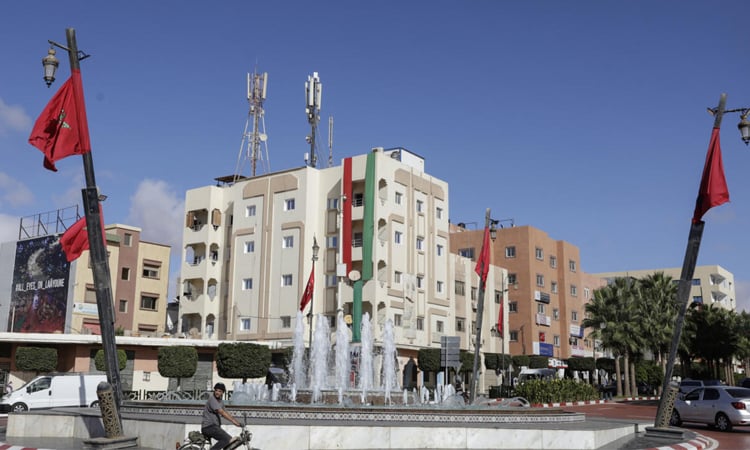News Flash
News Flash

LAAYOUNE, Nov 18, 2025 (BSS/AFP) - Many people in Western Sahara hope Morocco's long-discussed autonomy plan for the area -- now backed by the UN Security Council -- will accelerate development and end the half-century-long territorial dispute.
Its main city of Laayoune, with modern apartment blocks built among sand dunes some 20 kilometres (12 miles) from the Atlantic Ocean, already projects an image of growth and stability.
But the sprawling desert city of around 250,000 people remains at the heart of the conflict that has pitted Rabat against the Algiers-backed Polisario Front, which seeks independence for the mainly tribal native Sahrawi people.
Cafes and restaurants in Laayoune are full, and official portraits of King Mohammed VI and Moroccan flags hang from balconies.
Many Sahrawi tribal leaders interviewed by AFP voiced support for Rabat's plan.
Among them, Abdallah Salhi said the plan would mean "living off our resources and having elected officials, a parliament and a government that manages this region".
While mineral-rich Western Sahara remains on the UN list of non-self-governing territories, the Security Council on October 31 endorsed Morocco's plan.
The Western Sahara is a national cause for Morocco and is central to the kingdom's tensions with its neighbour and regional foe Algeria.
- 'Unbearable separation' -
When Spain pulled out of Western Sahara in 1975, both Morocco and the Polisario, which was founded two years earlier, claimed the territory.
Fighting displaced tens of thousands of people, who fled to camps in western Algeria, UN figures show.
Abdelatif Baira, another Sahrawi tribal chief, said the autonomy plan would allow the return of "our brothers and sisters" from the camps near Tindouf, home to roughly 175,000 Sahrawi refugees.
"The separation of families is unbearable," Baira said.
Wearing a traditional daraa gown, the 64-year-old said the territory was "empty" and devoid of infrastructure when the Spanish withdrew.
"Today everything has changed. Morocco built universities, hospitals, an airport, roads, schools..."
The territory is rich in phosphates and home to lucrative fishing grounds.
It has a population of more than 600,000, according to Morocco's 2024 census, which does not distinguish between native Sahrawis and those who moved there from Morocco.
Last month's UN vote, coming at the initiative of US President Donald Trump's administration, said "genuine autonomy could represent a most feasible outcome" under the plan to end the dispute.
Morocco must now update its proposal to reach "a final mutually acceptable solution" according to the resolution.
The Polisario still demands a UN referendum on self-determination -- promised under a 1991 ceasefire but never held.
Moulay Ibrahim Taleb Ali, a 40-year-old who heads a cooperative that produces the daraa, welcomed the UN move.
He said the plan could stimulate the Western Saharan economy and attract foreign investors previously reluctant because of the territory's disputed status.
- Some fear 'restrictions' -
Hanane Khadiri, a 38-year-old theatre company director, said the autonomy plan would provide women with more opportunities.
She said Sahrawi women "work a lot", especially in traditional crafts, but often lack the "financial backing to prosper".
She said Laayoune was changing, even though it was already "developed, modern and stable".
Some fear the Moroccan plan could restrict freedoms, however.
Ajwad, 45, who is originally from Meknes and asked that his family name be withheld for fear of retribution, said some Sahrawis "don't want autonomy" under Morocco, because that would "impose restrictions" on their freedoms.
He also worried that the political shift could create friction.
"In a future local government, the question of who will hold which position is likely to fuel rivalries," he said, adding that competition within local institutions is also likely.
Since moving to Laayoune in 2005 to start a production company, Ajwad has "not paid taxes", he said, much like other businesses in the territory.
But that could change under the autonomy plan, he believed. "We have already started preparing for taxation, three or four years ago."
"We are not paying yet, but that will come soon," he added. "Some will have difficulty adapting to that."